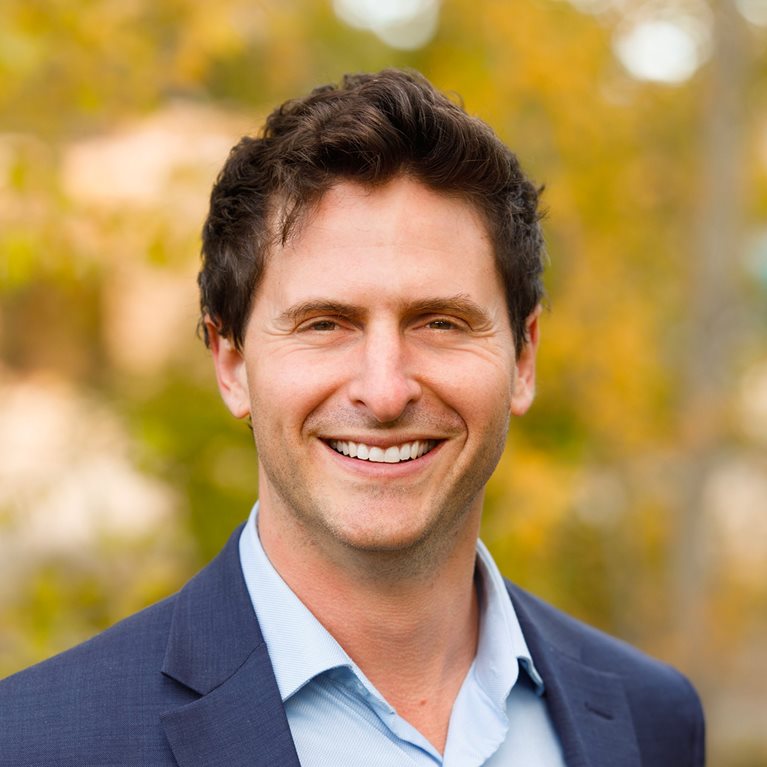In this edition of Author Talks, McKinsey’s Kunal Modi chats with former policy maker Justin Zorn and consultant Leigh Marz about their new book, Golden: The Power of Silence in a World of Noise (Harper Wave, May 2022). Noise isn’t just what we hear; it’s also what we see, think, and feel, and though the world has gotten noisier, our brains haven’t gotten any better at processing information. To avoid being overwhelmed by the magnitude of today’s stimuli, Zorn and Marz say people should take time for quiet moments throughout the day—doing so might even regenerate nerve cells. An edited version of the conversation follows.
What problem were you trying to solve with this book?
Justin Zorn: Our new book is about the power of silence, as a source of mental clarity and physical health, and it offers solutions to challenges facing humanity—at a personal level, and as societies, communities, and the globe as a whole. The impetus for writing this book was a simple question: What are we going to do about this crazy world? How are we possibly going to be effective in helping to bring more sanity right now?
We both had this intuition that the answers to the problems we’re facing might not all be solved with more thinking and talking; that there’s a necessity to turn down the noise and tune into silence.
In the context of the world today, how do you define silence and noise?
Justin Zorn: It’s been a surprising journey for us, discovering our definition of noise and silence. We wrote an article for Harvard Business Review about the power of silence in a literal auditory sense, for mental clarity, our health, relationships, and the ability to generate good ideas.1 The article resonated with folks, and we continued to follow the bread crumbs and interview neuroscientists, poets, philosophers, someone on death row, a heavy-metal star, and a Grammy winning opera singer—all about this question of: What’s the deepest silence you’ve ever known?
The answers surprised us because they weren’t all auditorily quiet. While some people were describing balmy mornings and sunrise over a vast ocean, other people were describing situations that sounded auditorily loud, like running the perfect line through roaring rapids, or births, or deaths, or even the 4:00 a.m. market and all-night dance party. What they were describing were moments of pristine attention, where nothing was making claims on the consciousness.
Leigh Marz: That question and what it provoked led us to look beyond just auditory noise. We do look at auditory noise that we measure in decibels and think of often as happening to our ears, and maybe to our nervous systems when it’s really loud. Then we go further into informational noise: that which is grabbing our attention, which is increasing exponentially right now, while our ability to process that information is not increasing. Then we look at internal noise: that which happens in our consciousness, like rumination, worry, and anxiety, which are also on the rise in these times.
Is the time we’re living in now noisier than any other time in history?
Justin Zorn: Human beings have always complained about the noise of the world. About 2,500 years ago, in South Asia, people were complaining about the sounds of cymbals and gongs and street vendors. In The Epic of Gilgamesh, the gods sent a great flood to wipe out the Earth because of all the noise that humanity was generating. But in our research, we found that it is an empirical fact that the world is louder than it’s ever been. It’s not just a little bit more auditory noise—there is a mass proliferation of mental stimulation in our world today.
In our research, we found that it is an empirical fact that the world is louder than it’s ever been. It’s not just a little bit more auditory noise—there is a mass proliferation of mental stimulation in our world today.
Fire engine sirens, for example, have to be loud enough to break through the surrounding soundscape. The volume of their sirens is a proxy for that loudness, and over the last 100 years, fire engine alarm sirens have gotten to be six times louder than they were previously.

Leigh Marz: The former CEO of Google, Eric Schmidt, estimates that the amount of information we’re creating is equal to that from the beginning of civilization to 2003, and that we’re creating that much information every day. There is an exponential amount of information in our surroundings that is grabbing for our attention, increasingly, with notifications, buzzing, whooshing, and pinging. That is increasing while our ability to process that information is not.
We are concerned about that informational noise, as well as the internal noise—that which is in our consciousness. A professor at University of Michigan, Ethan Kross, estimates that we listen to something like 320 State of the Union addresses every day in our brains. That compressed internal speech is going nonstop.
In your research, what surprised you most about how people think about silence?
Leigh Marz: The answers to the question we asked, “What’s the deepest silence you’ve ever known?” helped shape this book and led us to understand that this is more than an auditory exploration—we want to look at silence beyond the absence of noise, as a presence, because our respondents noted things that were auditorily loud. They named things like births and deaths and moments of awe, moments where words fail us. These were also moments where they were often not alone. They were often in a deep shared silence.
Justin Zorn: In conversations with people about this meaning of the deepest silence they’ve ever known, we spoke, for example, to Tyson Yunkaporta, who’s an academic and also a member of an Aboriginal clan in Queensland, Australia. He told us that in his Indigenous language, there’s no such thing as silence.
There’s no word for silence because nature abhors a vacuum. There’s no such thing as the absolute absence of sound and stimulus, probably anywhere in the universe, but he said that you could describe the meaning of what we’re talking about as silence, as the ability to perceive a signal.
Leigh Marz: That’s one of those places we’re looking at silence as a starting place to discern the signal from the noise. It is a place for us to take stock of what is true and needing our attention—a signal—and what is noise—a distraction—distracting us from what we want to put our attention to.
How can we introduce elements of silence into our day-to-day lives?
Leigh Marz: That’s the time and space we’re most interested in: How do we integrate silence into our busy, noise-soaked lives, where we’re engaged in doing all the things we want to do? Justin and I both have families with young kids, and we’re involved in high stress work on climate and pollution and violence prevention. So we were interested in answering this question of how we weave silence into a busy, noise-soaked life.
How do we stay engaged in these questions, and in this time, while also finding silence? We’re looking at moments in the day when we can take mini breaks to connect to the deeper silence that helps us reach clarity and a place of discernment, as well as more rapturous moments—deeper moments of silence, where we can take a bigger pause and assess what we’re doing with this precious life of ours.

Justin Zorn: The core element of this is simply about appreciating silence in our lives. So many of us have meditated at one time or another. It’s a practice Leigh and I have both appreciated and gotten a lot out of in our lives. I had some experience teaching meditation on Capitol Hill, when I worked as a policy maker in [Washington,] DC, and Leigh has also had experience as a mindfulness teacher through her work with coalitions and leadership coaching.
We recognize that mindfulness isn’t for everyone. It’s not necessarily a cure-all solution to these destabilizing winds of modern mental hyperstimulation. Many people often think about mindfulness and meditation as a to-do, or even as a cudgel with which to beat themselves up, and say, “Why aren’t I meditating enough?” One of our core propositions is that the simple act of listening to silence, to the breeze, to the rain, even just to the ringing in our ears, can bring profound benefits to health and clarity. Researchers at Duke Medical School found that in mammalian brains, the act of listening to silence regenerates nerve cells. It regenerates neurons in the brain at a higher level than other forms of listening.
One of our core propositions is that the simple act of listening to silence, to the breeze, to the rain, even just to the ringing in our ears, can bring profound benefits to health and clarity.
We talked, for example, to someone who worked as the White House correspondent for Time magazine for some time. And during her really high-stress life, she would come home and sit on the couch when she would get home after a busy day, and just listen. She didn’t have a meditation practice, per se, but she would listen to the ringing in her ears for about five minutes, and over time, that ringing in her ears would start to subside. It was almost like something residual from the stress in her day.
Without any kind of meditation practice, that act of listening to the silence was how she found her clarity, without any need for training or any kind of special rules and tools.
How can organizations benefit by honoring elements of silence in the workplace?
Leigh Marz: There are a great number of things at risk right now in this noisy world. We are finding more divisions between people all the time; people at work are having a harder time focusing on the work that they care about and need to get done; relationships are suffering; our relationship to the Earth is in peril. We really see that the connection to silence is an opportunity to connect deeply with these things: What is our intention? What is it that we want to focus our attention on? How are our relationships? How are we showing up?
We see silence as a pathway to compassion, to empathy, and to insight as well. Stepping back into deep silence—even sharing that silence as we think through these issues—really allows for novel thinking to emerge.
Justin Zorn: There’s one word that comes to mind with this question of what silence can offer us in making better decisions—in making sense of the world—and that word is discernment. In conversations with the technical experts in medicine, and neuroscience and various fields, we found again and again that noise is stress on our bodies and our minds. In order to make good decisions, but to discern what’s really true, it’s important to be able to tune into silence.
We spoke, for example, with Cyrus Habib, who came to the United States as a little boy of Iranian immigrants. He went blind when he was eight years old; he learned braille; made it through Columbia, Oxford as a Rhodes Scholar, Yale Law School; and then became lieutenant governor of Washington State when he was 35 years old. Everyone expected Cyrus to become a US senator, or that he was next going to run for governor, but he made an announcement, surprising everyone, that he was taking a vow of poverty, chastity, and obedience as a novice Jesuit priest.
What ultimately made him decide to go off and have this radical change in his career was the need to be able to discern. He said that amid all the internal noise of his life, all the thinking of “How am I performing? How is this looking on Twitter? How is this looking in a press release?” it was impossible to tune in to what was truly producing positive change. Amid all these different forms of noise, what Cyrus emphasized most was the necessity of getting beyond the ethic of performing constantly, to be able to tune into what’s true.
How does the concept of silence relate to meditation or mindfulness?
Leigh Marz: It felt important to us to look at silence as this basic place to start from. It doesn’t require all the rules and tools of mindfulness or any kind of particular format. This book is about finding your pathway to silence and noticing what it is that brings you that internal calm and quiet that allows you to connect with what you really want in this world.
We heard from people who were finding quiet through chainsaw-carving large hunks of wood, or through dance in a really auditorily loud environment, or through flow states of all kinds. These are more familiar and more accessible—they don’t require a lot of training. We know how to do this as humans, we know how to find our way back to quiet, and this is really about remembering our way back.
How can we as a society incorporate more silence into our world?
Justin Zorn: One thing we often notice these days is people feeling bad about themselves for the inability to focus. We want to emphasize that it’s not anyone’s individual fault, per se, that it’s so tough to focus. A human being is not wired to be able to deal with the mental stimulus we’re encountering today, relative to earlier periods of time. One thing we emphasize in this book is that our society is wired to generate noise.
One thing we often notice these days is people feeling bad about themselves for the inability to focus. We want to emphasize that it’s not anyone’s individual fault, per se, that it’s so tough to focus. A human being is not wired to be able to deal with the mental stimulus we’re encountering today, relative to earlier periods of time.
Think, for example, about how we measure gross domestic product: GDP goes up with the buzzing and roars of industrial machinery, or when there’s a new opportunity to be involved in something productive with respect to work late at night. GDP is measuring how much we’re producing in the monetary economy, but it’s not measuring, oftentimes, these moments of pristine attention that we’re talking about. It’s well known that the value of a pristine forest isn’t computed within GDP, typically, unless you chop down the wood and sell it at Home Depot.
You can say something similar about pristine human attention. The worth of pristine human attention—enjoying great art, for example, or in a quiet moment of reflection by the ocean or playing with your children—doesn’t count as monetary value unless it turns into eyeballs on a screen that can be used as a basis of advertising revenue, like when an app’s built-in algorithm deduces that you’re in a quiet moment of your day and swoops in with a notification to win your attention, which boosts usage statistics, and can enhance company earnings.
We look in the book at some questions of what it could mean to think about metrics of well-being that account for the value of pristine human attention, not just because that’s where we find the most happiness and worth—although that is what’s most important—but because that’s also what’s necessary for generating transformative ideas that are going to result in the most effective problem solving.
We do look in the book at a variety of solutions for what it could look like to build a society that honors silence. There’s still also the place, of course, for personal action, and what’s in our sphere of control.
Leigh Marz: With the sphere of control, we’re looking at our individual actions, but also at how we as families, as friends, as workplaces, and as a culture—how we can do these things together, partner together. What is within our sphere of control, where we can take immediate action, even if it’s small, and where we might be in a place of influence where we’re in a relationship, and maybe negotiating, discussing, and making agreements around how to share silence and mitigate the noise together.
What is something anyone could try today to begin to incorporate more silence into their lives?
Justin Zorn: One thing we emphasize is the importance of simply appreciating silence—to take some time throughout your day, and in a moment of transition, to take a pause. Maybe it’s opening the door, maybe it’s when you’re standing up to leave the room, maybe it’s when you’re turning on the tap for some water.
Whatever it is, take a quiet moment—and you don’t necessarily need to do a meditation practice—but simply notice a moment of silence, and appreciate the moment of silence. Let that be a source of clarity and reset in that moment. It’s not so much about the quantity of the silence, it’s the quality. Can we take a moment and go as deeply into the silence as we possibly can? Even if it’s only with us for a few seconds.
Leigh Marz: Sometimes these moments of silence come to us, and they may not be initially so welcome. Maybe our podcast just stopped streaming all of a sudden or we find ourselves waiting in a long line—during something like that, some kind of interruption where silence comes and finds us, fall into that silence, and appreciate it deeply.
Take that moment. Don’t go ahead and check our phones, and all the other things that we busy and fill ourselves with. Instead, really pause and notice our surroundings, and feel what is it really like to tap into silence in the midst of this busy day.
Justin Zorn: Sometimes the word silence can have a connotation of complicity or complacency around what’s wrong. Sometimes we hear culturally that even silence is violence. And we respect this notion; it’s something we write about with great appreciation in the book, but our contention is that so much of the apathy in the world right now isn’t born of silence—it’s born of noise. When we’re caught up in paying attention to Instagram “likes,” gossip, career jockeying, and whatever else it might be, all that noise makes it difficult to truly focus on living a life of empathy, to focus on hearing what’s necessary in our lives from the people around us, and to hear what’s necessary with respect to what’s happening in the broader world.
The worth of pristine human attention—enjoying great art, for example, or in a quiet moment of reflection by the ocean or playing with your children—doesn’t count as monetary value unless it turns into eyeballs on a screen that can be used as a basis of advertising revenue, like when an app’s built-in algorithm deduces that you’re in a quiet moment of your day and swoops in with a notification to win your attention.
So we make this contention in the book that silence is actually an important part of ethics. There is a moral dimension of silence. It’s something that Gandhi applied throughout his life, even during the most intense times of the work he was doing—to spend every Monday not speaking. He said that a seeker of truth needs silence. This is something that we think we can all tune into, in a sense, in our world today.


